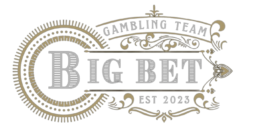Introduction
In the heart of the North Atlantic, nestled between Europe and North America, lies Iceland—a country renowned for its breathtaking landscapes, geothermal wonders, and rich Viking heritage. Recently, a new phenomenon has been quietly taking hold in this island nation: online poker. This digital card game has been gaining significant traction among Icelanders, offering a unique blend of entertainment that combines skill, strategy, and the thrill of competition.

The Rise of Online Poker in Iceland
The surge in popularity of online poker in Iceland can be attributed to several key factors:
Exceptional Internet Infrastructure
Iceland boasts one of the highest internet penetration rates in the world, with over 98% of the population having access to fast and reliable internet connections. This technological advantage has created the perfect foundation for the growth of online gaming, including poker.
Geographical and Climatic Conditions
Iceland’s long, dark winters with harsh weather conditions naturally encourage residents to seek indoor entertainment. Online poker fits this bill perfectly, offering endless hours of engagement regardless of the conditions outside.

150% deposit match bonus – $2000!
Try itFirst deposit bonus of 100% up to $600
Try it1000€ deposit welcome bonus
Try itThe Icelandic Context
Social and Cultural Aspects
Iceland has a population of just over 360,000 people, making it one of the least populous countries in Europe. This small population size, combined with the country’s vast and often challenging geography, can sometimes lead to a sense of isolation, particularly in rural areas.
Online poker has emerged as a way to bridge these geographical gaps, allowing Icelanders from different parts of the country to connect and compete with each other virtually.
Legal Landscape and Challenges
Despite its growing popularity, online poker in Iceland exists in a legal gray area. The country’s gambling laws, which date back to 1926 and were last significantly amended in 2005, do not explicitly address online gambling. This lack of clear regulation has led to ongoing debates among lawmakers, players, and industry experts about the future of online poker in the country.
Current Gambling Monopoly
Currently, the state-owned company Íslensku Spilakassarnir holds a monopoly on gambling operations in Iceland. However, this monopoly primarily covers traditional forms of gambling and doesn’t explicitly extend to online poker. As a result, many Icelanders turn to international online poker platforms to play, operating in a somewhat ambiguous legal environment.
Player Experience and Community
Despite the legal uncertainties, the Icelandic online poker community continues to thrive. Players appreciate the convenience and accessibility of online platforms, which offer a wide variety of games and stakes to suit different preferences and skill levels.
Social Interaction
The online poker scene in Iceland has also fostered a sense of community among players. Virtual poker rooms often feature chat functions, allowing players to interact, share strategies, and build friendships.
Success Stories and Inspirations
As interest in online poker has grown, some Icelandic players have begun to make a name for themselves in international online tournaments. These achievements have further fueled interest in the game among their fellow countrymen, inspiring more Icelanders to try their hand at online poker.

150% deposit match bonus – $2000!
Try itFirst deposit bonus of 100% up to $600
Try it1000€ deposit welcome bonus
Try itEconomic Impact and Potential
While it’s difficult to quantify the exact economic impact of online poker in Iceland due to the lack of regulation and official data, anecdotal evidence suggests that it’s not insignificant. Some Icelanders have turned online poker into a substantial source of income, either as a side gig or even a full-time pursuit.
Potential for Regulation
If Iceland were to regulate and tax online poker, it could create a new stream of revenue for the government. This could be particularly attractive given the country’s efforts to diversify its economy and reduce its reliance on traditional industries like fishing and aluminum smelting.
Responsible Gaming and Player Protection
As online poker continues to grow in popularity, there’s an increasing focus on promoting responsible gaming practices. Many of the international platforms used by Icelandic players offer features like self-exclusion options, deposit limits, and resources for problem gambling.
Looking to the Future
The future of online poker in Iceland remains uncertain but promising. As discussions about regulation continue, players and industry stakeholders are hopeful for a framework that balances consumer protection with the freedom to enjoy the game.
Conclusion
Regardless of how the regulatory landscape evolves, it’s clear that online poker has found a receptive audience in Iceland. From the bustling streets of Reykjavik to the remote fjords of the countryside, Icelanders are increasingly finding community, challenge, and excitement in the virtual poker rooms of the internet. This digital card game is more than just a pastime; it’s a growing global phenomenon that transcends geographical boundaries and connects people across vast distances.
FAQs
What is the current legal status of online poker in Iceland?
Online poker exists in a legal gray area in Iceland due to outdated gambling laws that do not explicitly address online gambling.
Why has online poker become popular in Iceland?
The popularity can be attributed to Iceland’s exceptional internet infrastructure, long winters, and the social connectivity online poker offers.
How does online poker contribute to Iceland’s economy?
While difficult to quantify, online poker has become a significant source of income for some individuals and has the potential to generate substantial tax revenue if regulated.
What are the challenges faced by online poker players in Iceland?
The primary challenges include the legal ambiguity and lack of local platforms, forcing players to rely on international sites.
What measures are in place to promote responsible gaming?
Many international platforms offer self-exclusion options, deposit limits, and resources for problem gambling to ensure responsible gaming practices.
